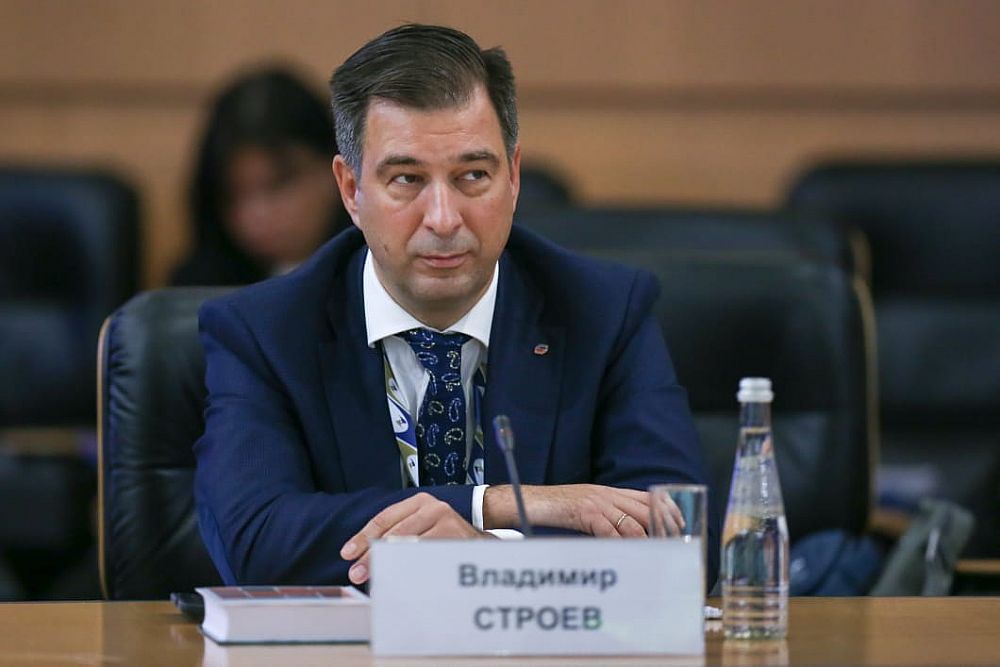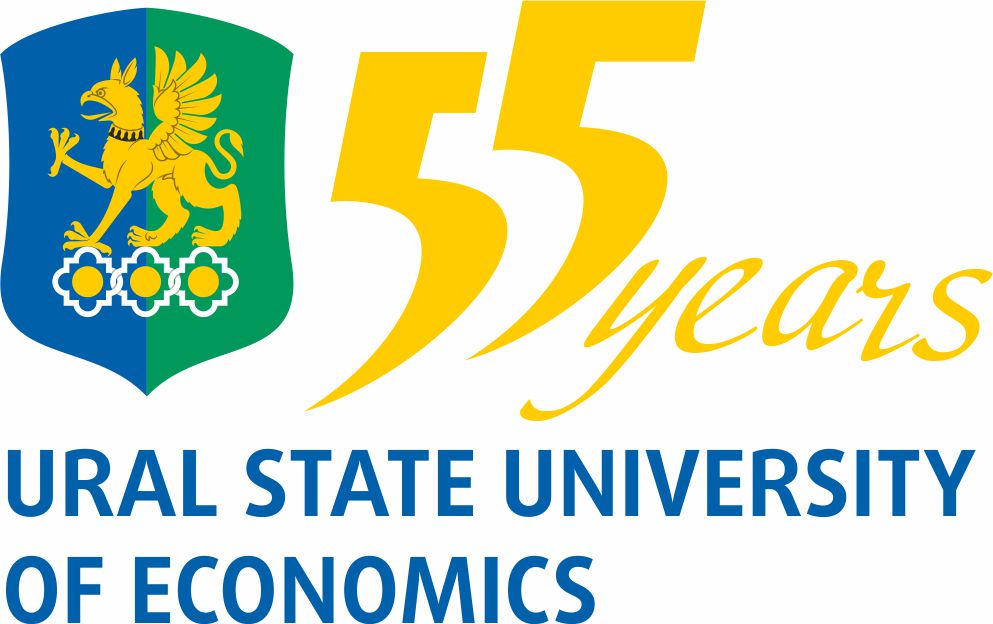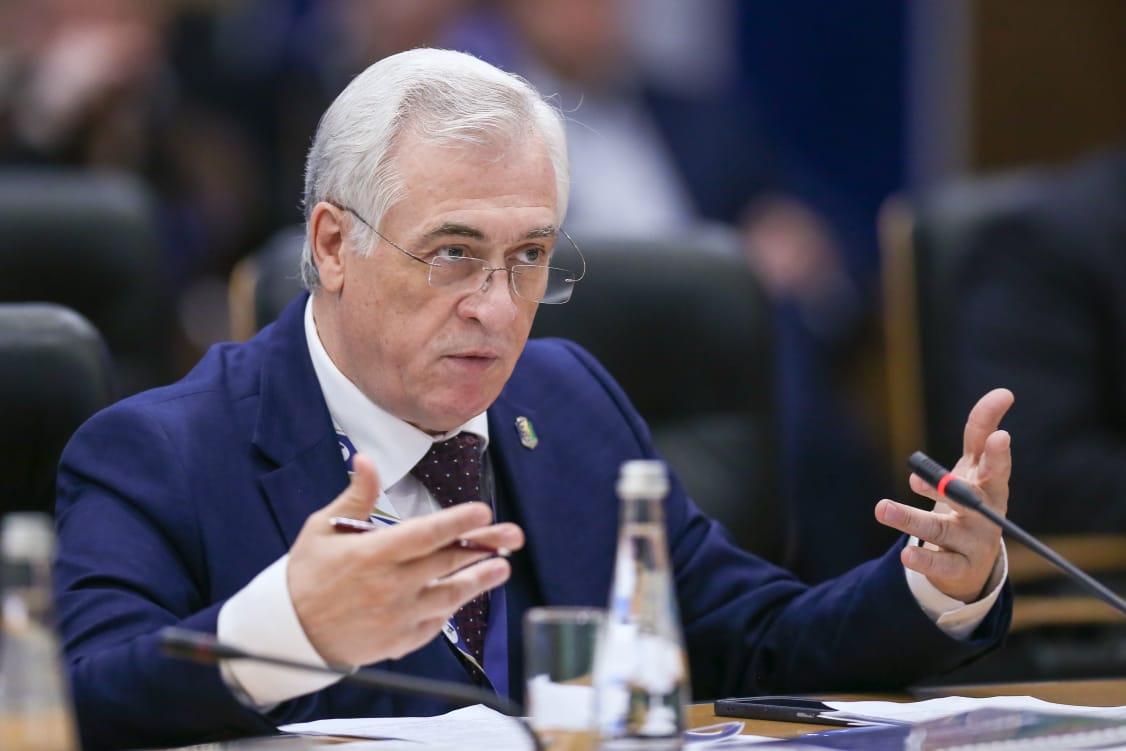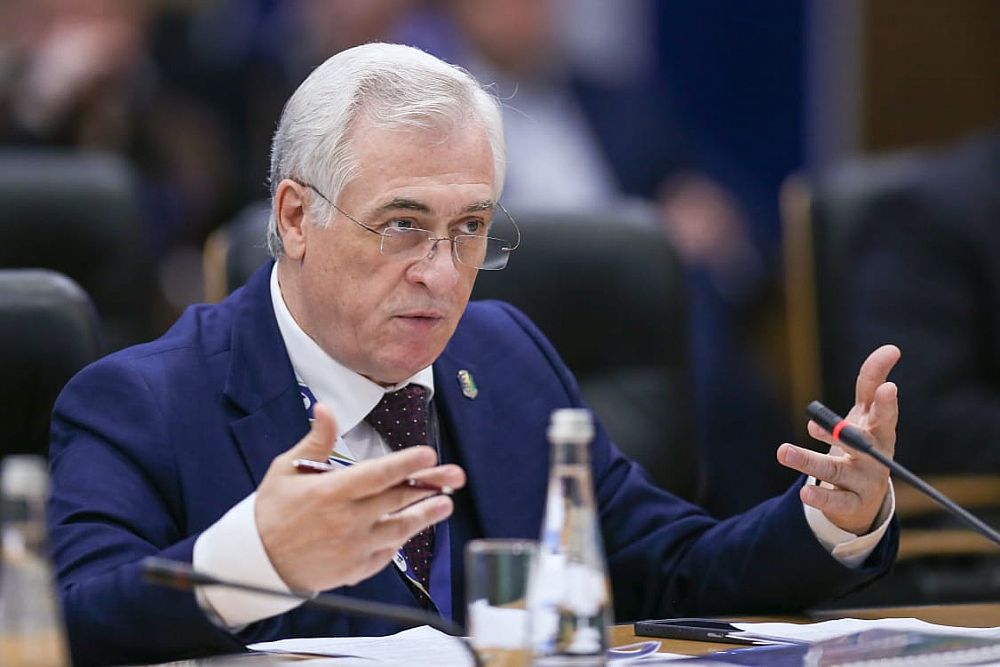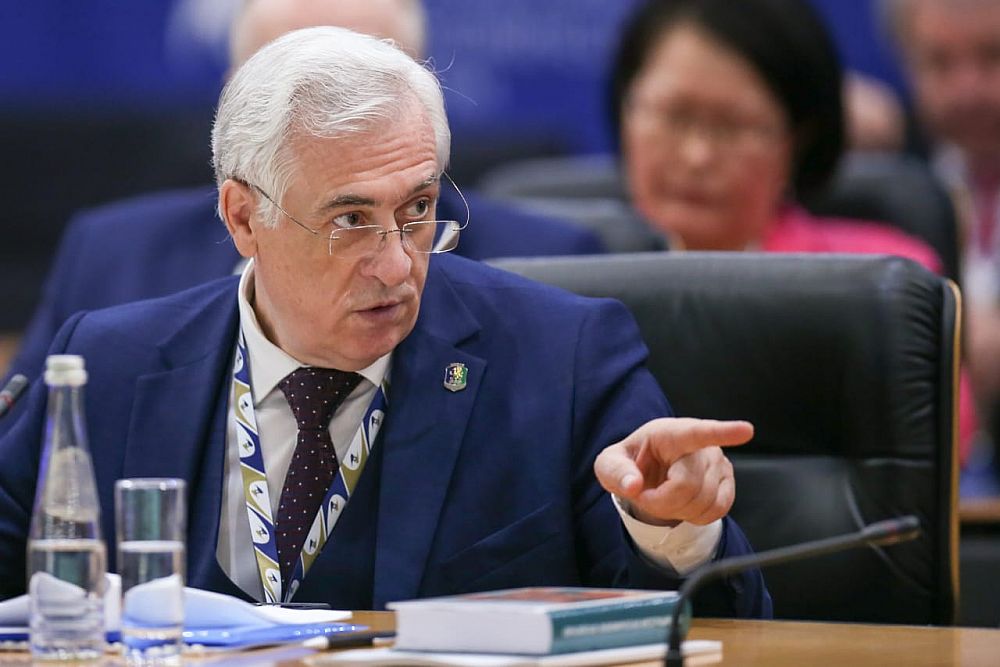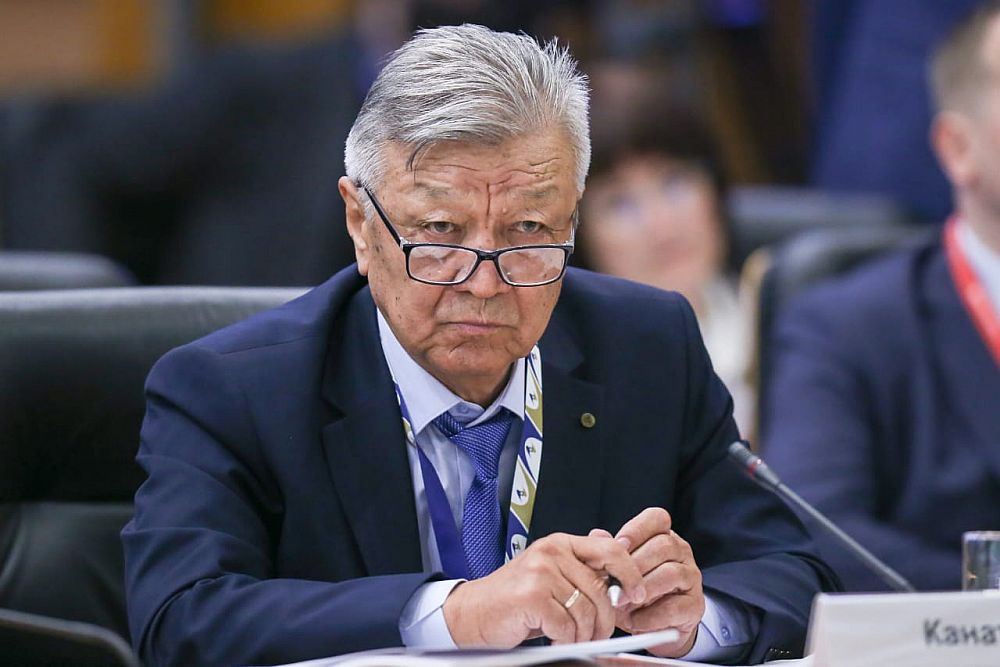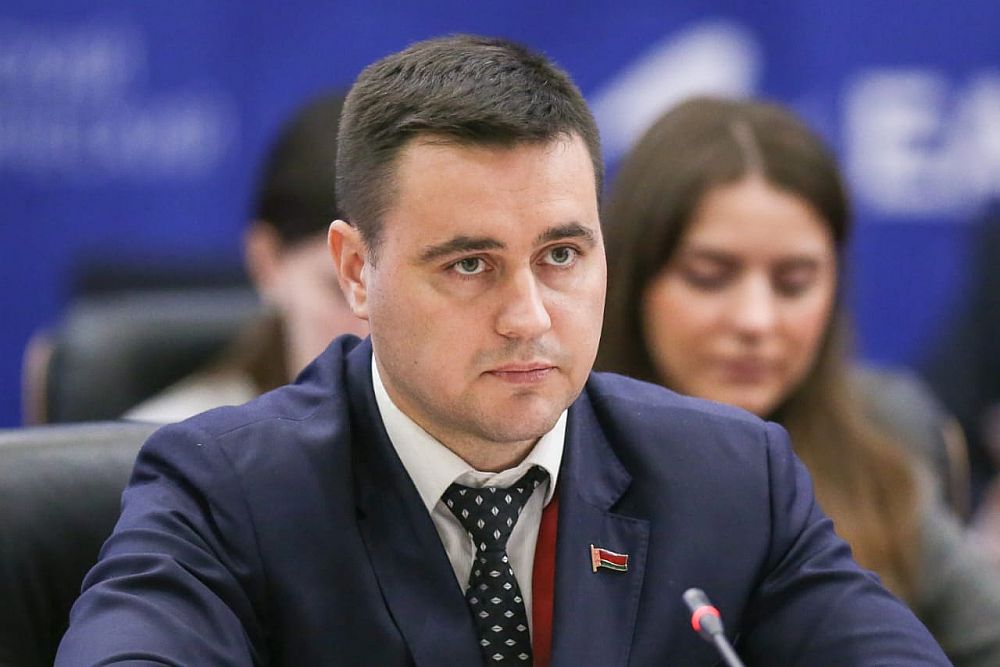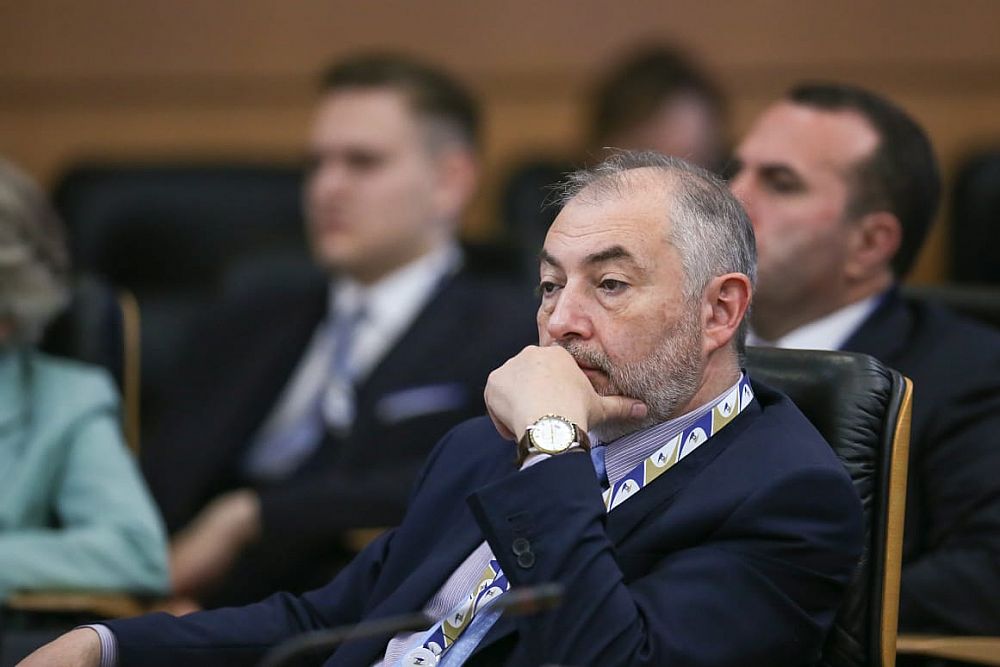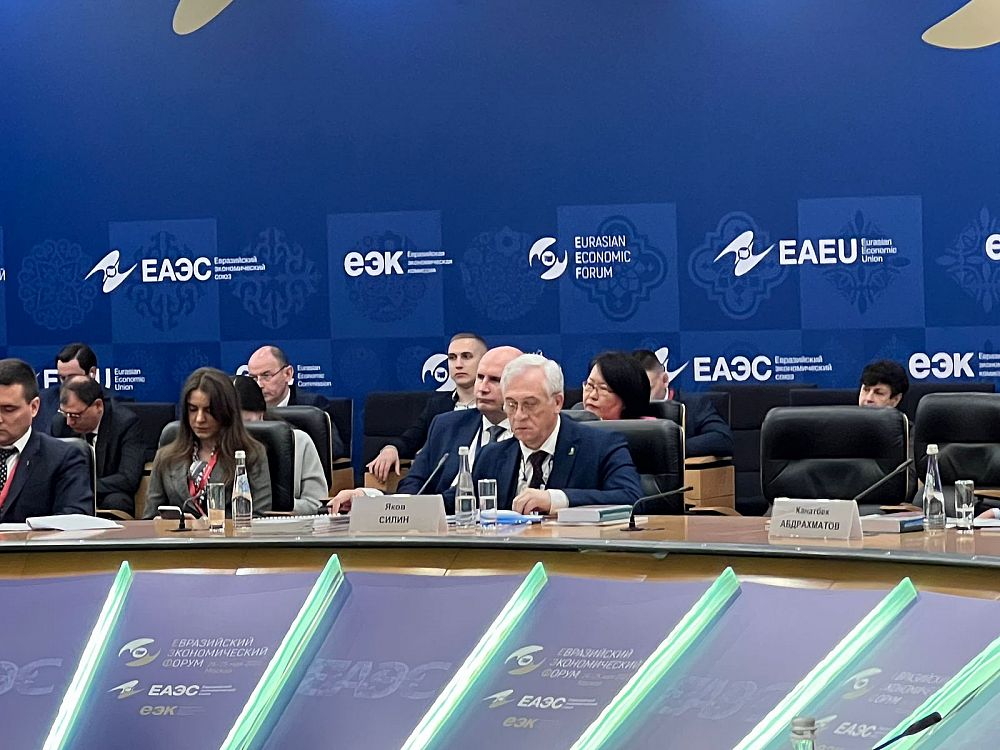 See other releases of corporate mass media
See other releases of corporate mass media
Science and personnel — potential for the development of the EAEU
In Moscow, within the framework of the II Eurasian Economic Forum, the thematic session "Scientific and Technical Cooperation and Professional Education: The Main Priorities of the Eurasian Economic Union" was held. The event was moderated by USUE rector Yakov Silin.
.jpeg)
During the plenary session of the forum, a day earlier, the presidents of the countries of the Eurasian Economic Union (EAEU) noted some priority areas for the development of the EAEU. One of them is the deepening of scientific and technical cooperation between the participating countries. And on this way, the members of the Union will have to solve a number of problems. First of all, it is necessary to create a legal framework. The importance of this process was emphasized by Vladimir Sipyagin, First Deputy Chairman of the Russian State Duma Committee on Science and Education. “The members of our union are differentiated by their scientific and economic potential. Our education systems are not yet compatible enough. In this regard, of course, the problem of imbalance arises - a potential drain of personnel from other EAEU countries to Russia. This problem can be solved by creating a legislative foundation for the convergence of our professional standards,” explained Vladimir Sipyagin. “It is necessary to strengthen inter-parliamentary work, involve experts in it, and establish a unified information and analytical center to assess the scientific potential of our universities in order to create successful research teams, which then will give rise to commercially successful technologies.”
A specific list of technologies that are especially important for the EAEU member countries was mentioned in speech by Denis Sekirinsky, Deputy Minister of Science and Higher Education of Russia. In his opinion, these are new energy, highly efficient agriculture, and high-quality healthcare: “It is very important to intensify ties between our young scientists. The limitation of external scientific contacts that we have encountered is a matter of fundamental importance. Under these conditions, we have to form a scientific community whose efforts are aimed at solving specific practical problems, and change the role of science in the life of our countries.”
Andrey Ivanets, Minister of Education of the Republic of Belarus, expressed solidarity with Russian colleagues . “It is important to make research work for the economy of today, so that every scientist has the opportunity to advance the introduction of their discoveries into the real sector of the economy,” Andrei Ivanets describes the Belarusian approach. “And we appreciate the cooperation that is being carried out with the EAEU countries in high-tech industries: in space industry and nuclear energy with Russia, in materials science with Kazakhstan, in medicine with Armenia, and many, many other areas.”
During the discussion of the issue of scientific and youth mobility, the position of the USUE rector Yakov Silin agreed with Altanay Omurbekova, director of the Department for Labor Migration and Social Protection at the Eurasian Economic Commission . Mobility is the most important factor in the formation of a single labor market, without which it is difficult to talk about the prospects for deep integration. Such a single labor market will become possible when every working-age citizen of the EAEU states could find a job in another state of the Union.
But how can we help young people who are still studying at the university to take their first steps within the common Eurasian educational space? The development of online technologies has contributed greatly thereon. However, not always a computer screen can replace a live presence.
“Today, there are four network universities within the EAEU. Part of the quotas for the arrival of foreign students is allocated by Russia; part of the quotas is allocated by Kazakhstan. However, these quotas are not fully utilized. Why?” asked the dean of the Faculty of Economics of RUDN University Inna Andronova . “Because students often simply cannot afford traveling between cities and countries. It is necessary to form an interstate fund at the Union that would finance their short-term mobility. The EAEU has more prospects in this regard than the SCO or BRICS. How many people can afford a ticket to Brazil? Few. Therefore, the EAEU is more promising in this regard and the opportunities for integration are higher.”
In 2022, as part of the I Eurasian Economic Forum (EEF) in Bishkek, the leaders of fifteen universities in Russia, Kyrgyzstan, Armenia, Belarus, and Kazakhstan laid the foundation for the formation of the Eurasian Network University (ESU). At the II EEF, the rector of the State University of Management, head of the ESU Coordinating Council Vladimir Stroev noted that over the past year the list of university participants has expanded, and now the founders are faced the issue of a more thorough selection of new members since at the forefront is the unification of the curricula of the participating universities. However, the ESU is open to expanding cooperation and the further the founding universities go in developing joint curricula and projects, the broader cooperation can ultimately be.
Besides, during the meeting, reports were made by the rector of the Moscow Energy Institute, Nikolay Rogalev , the rector of the St. Petersburg State University of Economics, Igor Maksimtsev, a deputy of the National Assembly of the Republic of Armenia, Hayk Babukhanyan , Deputy Chairman of the Federal Agency for the Commonwealth of Independent States, Compatriots Living Abroad and International Humanitarian Cooperation, Pavel Shevtsov , Deputy President of the Russian Academy of Sciences, Vladimir Ivanov , and President of the Academy of Sciences of the Kyrgyz Republic, Kanabek Abdrakhmatov .
At the end of the meeting, Yakov Silin noted that for the thirteenth year in a row, the Ural State University of Economics was organizing the Eurasian Economic Youth Forum in Yekaterinburg, whose agenda and topics almost verbatim coincide with the issues discussed at the Eurasian Economic Forum of the EAEU. He noted that this was an example of trust and integration of various regions and countries of Eurasia, which USUE is ready and will be happy to share with all partners who express interest in it.
Photo gallery:
